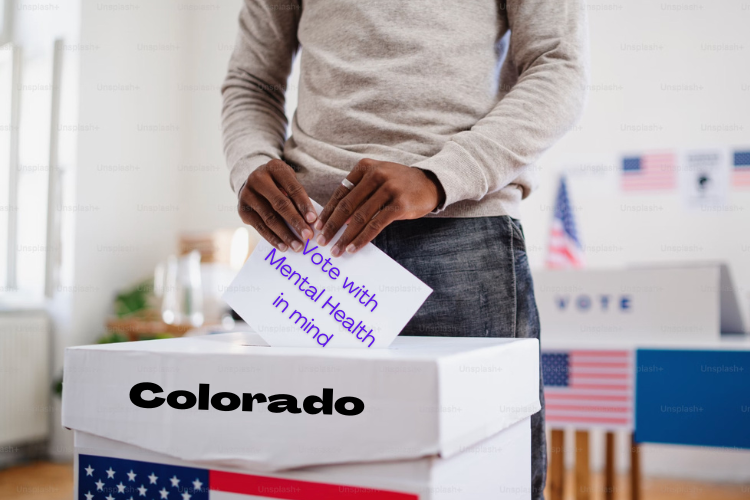By Renata Hill, Moodfuel
From LGBTQIA2S+ rights to veterans' care to affordable housing, initiative explains far-reaching impacts of mental health challenges
As mental health emerges from the stigma closet, more candidates are speaking about its impact within the policy arena, from health care and the criminal legal system to housing and education. Advocates at the National Alliance on Mental Illness (NAMI) continue to call for a stronger focus on the impacts of policy decisions on mental health and vice versa, arguing that nearly every major issue discussed during this election affects the mental wellness of voters.
Recently, NAMI reignited its nonpartisan election season initiative known as #Vote4MentalHealth, originally launched in 2022. The goal is to provide national resources to explain the ways key policy issues intersect mental health and mental illness. The initiative also encourages voters to ask a central question: if elected, how will candidates at all levels of government decide which mental health services and supports communities can access?

As our country continues to navigate a growing mental health crisis, millions of Americans will cast their ballots this year for candidates that, if elected, will make decisions that impact the (availability) of mental health care in our communities,” said Hannah Wesolowski, NAMI’s Chief Advocacy Officer, in a press release.
The #Vote4MentalHealth campaign concentrates on nine key topics citing data from research and government agencies:
- Health care: one in five Americans live with a mental health challenge, but over half can't access treatment and 123 million live in areas without enough mental health professionals
- Criminal legal reform: one-third of adults in state and federal prisons having a diagnosable mental illness as do three-quarters of youth in the juvenile legal system
- Jobs and the economy: mental illness costs the U.S. economy over $190 billion in lost earnings each year
- Affordable housing: one in five unhoused people lives with a serious mental illness
- Veterans: nearly one in five veterans experience a mental illness and an average of 17 veterans die by suicide daily
- Education: one in six young people having a mental health condition, but only half getting treatment; in 2021, 10% of high school students attempted suicide
- Immigration: new immigrants and refugees often experience cultural changes, xenophobia and discrimination, circumstances that produce mental illhealth
- Racial inequity: People of Color are less likely to receive mental health care compared to white individuals
- LGBTQIA2S+ rights: The Queer community faces higher rates of mental health challenges and barriers to care; 56% of LGBTQ youth wanted mental health care in the past year but couldn't get it and Transgender adults are nine times more likely to attempt suicide.
A statement on the #Vote4MentalHealth website acknowledges that voters bring many different concerns to this election, but "most issues impact mental health."


